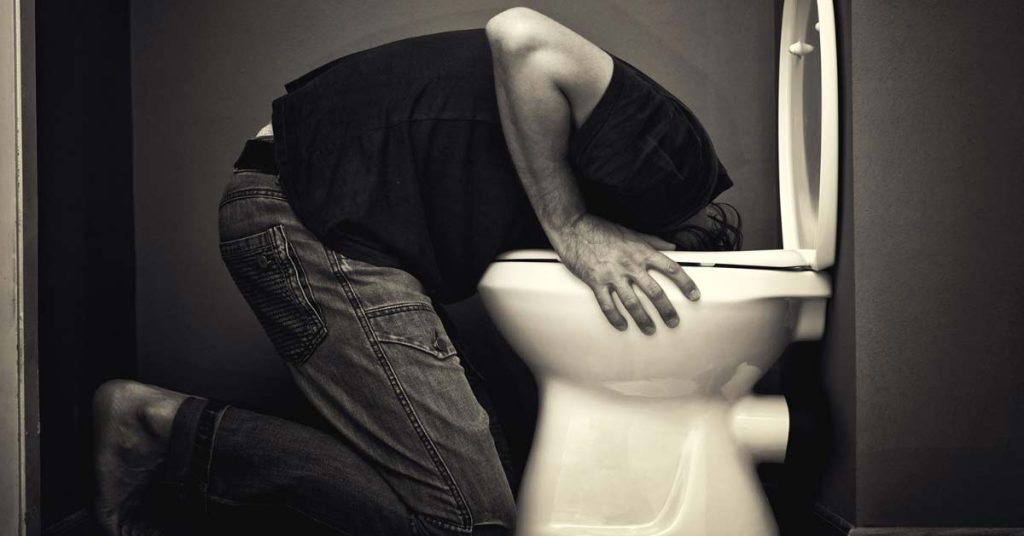Introduction to Alcohol Detoxification in Indianapolis
In Indianapolis, IN, alcohol detox requires careful planning and execution. It is essential to understand the physical, psychological and emotional implications of detoxification. Successful alcohol detox in Indianapolis, IN, involves five essential steps that are crucial in ensuring that the patient can manage withdrawal symptoms without relapsing.
- Medical supervision ensures that the patient’s vital signs are continuously monitored while undergoing treatment.
- Medication management provides relief for withdrawal symptoms such as nausea, anxiety and insomnia.
- Nutrition improvement offers much-needed nourishment to strengthen the patient’s body during recovery.
- Therapy support programs address underlying issues of addiction such as mental health disorders or past traumas.
- Aftercare planning helps an individual plan for the future by providing access to community resources and eliminating any triggers that could lead to relapse.
According to a report by The National Institute on Alcohol Abuse and Alcoholism (NIAAA), it is vital not to attempt treatment alone due to potential risks such as seizures or other severe complications arising from alcohol withdrawals.
Overall, successful alcohol detoxification in Indianapolis comprises an intense journey that requires professional assistance every step of the way.
The Five Essential Steps for Successful Alcohol Detoxification
 To successfully detox from alcohol in Indianapolis, it is important to follow a set of essential steps. These steps can help individuals to manage withdrawal symptoms and reduce the risk of complications.
To successfully detox from alcohol in Indianapolis, it is important to follow a set of essential steps. These steps can help individuals to manage withdrawal symptoms and reduce the risk of complications.
- Seek medical assistance: Before starting the detox process, consult a healthcare provider to determine whether medical support or supervision is necessary.
- Build a support network: Surround oneself with individuals who will provide emotional and practical support during the detox process.
- Follow a healthy diet: Eating nutritious food and staying hydrated can help to manage physical symptoms and promote healing.
- Engage in physical activity: Exercise can help to alleviate stress, reduce anxiety, and enhance overall wellbeing during detoxification.
- Attend counseling or therapy: Therapy can help to address underlying issues and provide coping mechanisms for individuals who are recovering from alcohol addiction.
Individuals who are undergoing alcohol detox in Indianapolis, IN, may experience different symptoms and may require additional care based on their unique circumstances and medical history. For instance, pregnant women may need specialized care, while individuals with a history of seizures may require medication to prevent seizures during the detox process.
If you or someone you know is struggling with alcohol addiction, don’t hesitate to take the necessary steps for detoxification. With the right support and guidance, recovery is possible. Take action today to take control of your health and well-being.
Because the only thing worse than a hangover is a botched DIY detox, consult with a healthcare provider before you start pouring green smoothies down your throat.
Consult with a Healthcare Provider before Beginning Detox
Consulting a healthcare professional is an essential step to undertake before starting alcohol detox. Seeking advice from a licensed practitioner can ensure that the process is carried out safely and effectively. It also provides an opportunity for individuals to discuss any underlying medical conditions, medications, or concerns they may have related to the detox procedures. A healthcare provider can guide the patients with appropriate steps to avoid complications and manage withdrawal symptoms.
Additionally, a healthcare professional can perform necessary tests and assessments to determine if someone is suitable for detoxification. The health care providers may assess patients’ vital signs, kidney and liver function, and electrolyte balance before recommending treatment options.
It’s important to note that individual factors such as age, sex, weight, drinking history, past experiences of detoxification should be evaluated while suggesting alcohol detox programs in Indianapolis, IN. Consulting with a medical professional could prevent the risk of complications and help individuals choose the right kind of treatment plan for safe and effective removal of toxins.
Research shows that alcohol withdrawal symptoms are unpredictable and sometimes fatal if left untreated for a longer period. In addition, different types of alcohol addiction might require unique detox strategies. Therefore seeking guidance from certified professionals becomes essential before starting any type of alcohol addiction treatment procedure.
Detoxing alone is like trying to climb Mount Everest with flip-flops, a tutu, and a bottle of vodka – you need a support network to make it through.
Create a Support Network
 Having a strong support system is crucial for successful alcohol detox. Here are some essential steps to consider:
Having a strong support system is crucial for successful alcohol detox. Here are some essential steps to consider:
- Formulating a support network with loved ones, friends or a professional team who understand your struggles and are willing to offer emotional and practical aid.
- Ensuring that your support group is present throughout every phase of the detox process, including the pre-detox stage, medical intervention and post-detox recuperation.
- Communicating openly with your support group regarding your fears, needs and progress, empowering yourself with their guidance, comfort and constructive feedback.
- Recognizing that recovery is an ongoing journey requiring constant maintenance and reinforcement. Stay connected to your support group after completing detoxification through continued counseling or involvement in sober communities.
It’s essential to choose the right people when forming a solid support system. While several people can help you facilitate recovery, some individuals may not be conducive to your healing process.
A man who struggled with alcoholism throughout his younger days looked back upon his life choices as he struggled with sobriety in his later years. His best friend from college turned out to be one of the most supportive individuals through rehab because of their long-standing relationship built on love, trust and transparency – ultimately building an impenetrable foundation for his recovery journey.
Slow and steady wins the race, unless you’re trying to quit drinking, then you just need to be steady.
Gradually Reduce Alcohol Consumption
As you begin your journey towards alcohol detoxification, it is essential to gradually reduce the consumption of alcohol. This means slowly but surely lessening your intake to avoid severe withdrawal symptoms and ensure a successful detox.
Here is a 6-step guide –
- Start with setting achievable goals and outlining an effective plan.
- Keep track of your daily intake of alcoholic beverages.
- Start by cutting back on drinks that have high levels of alcohol content.
- Gradually decrease the number of days you consume alcohol in a week.
- Substituting alcoholic beverages with non-alcoholic drinks or water can also help reduce addiction levels.
- Seek the help of friends and professionals for emotional and mental support throughout the journey.
In addition, actively seeking ways to cope with stress and anxiety can reinforce self-control and make the process more manageable.
History has shown that sudden abstention from alcohol consumption can result in severe symptoms such as delirium tremens, hallucinations, seizures, amongst others. Through gradual reduction, individuals can attain sobriety without enduring these severe symptoms due to reduced addictive behavior over time.
Manage Alcohol Withdrawal Symptoms
The withdrawal phase presents a significant challenge in the detoxification process. Overcoming it can be achieved by implementing a range of effective measures to aid the management of symptoms. This involves utilizing medical supervision, administering pharmacological interventions and employing appropriate holistic remedies to ease physical and psychological discomfort.
Medical supervision is critical for monitoring vital signs, managing medication regimens and identifying potential complications which may occur throughout the process. Additionally, pharmacological interventions such as benzodiazepines or antipsychotics are commonly used to reduce anxiety and treat severe mental health issues related to substance abuse. Complementary remedies such as acupuncture, yoga or meditation can also be employed to mitigate withdrawal symptoms.
Successful alcohol detoxification requires a multidisciplinary approach that takes into account individual risk factors and underlying medical conditions. Seeking professional guidance from qualified healthcare providers ensures that patients receive proper care throughout the course of their treatment plan.
A study conducted by the National Institute on Drug Abuse found that “successful completion of addiction treatment decreases the likelihood of criminal involvement and improves social functioning.”
Adopt a Healthier Lifestyle
Improving Your Way of Life to Succeed in Alcohol Detoxification
One crucial step towards successful alcohol detoxification is adopting a healthier lifestyle. This means making conscious efforts to consume healthy food, engaging in regular exercise and stress-relieving activities, and avoiding triggers that may cause relapse.
By embracing a healthy lifestyle, individuals have increased their chances of achieving long-lasting sobriety. Healthy habits can positively contribute to physical health, improve mental well-being, and create a sense of purpose and control over one’s life.
In addition to the steps outlined above, it’s essential to connect with supportive networks such as family members or peer support groups during the recovery process. By doing so, individuals can draw on motivation from those who genuinely care about their well-being.
Take action today to develop a sustainable approach towards better health. Don’t wait for things to get worse before implementing a positive change. Give yourself the best possible chance by incorporating healthier practices into your daily routine now.
Say goodbye to the booze, or say goodbye to your liver – the choice is yours.
Achieving Lasting Success in Alcohol Detox in Indianapolis, IN
The key steps to achieving long-term success in the alcohol detoxification process are crucial. The journey towards recovery starts with taking necessary measures such as:
- Choosing the right facility
- Acknowledging that you need help, and
- Committing to the process fully
Identify your triggers and address them accordingly. It’s important to recognize that achieving sobriety is only possible if you take responsibility for your actions and decision-making. Finally, embrace a healthy lifestyle that includes healthy eating habits, regular exercise, and mindfulness practices.
 To maintain sobriety after successful detoxification, one must remain vigilant about their mental health. You can achieve lasting success by maintaining a positive mindset and mental fortitude while also seeking support from family members or groups like Alcoholics Anonymous. As part of the ongoing effort to stay sober, it’s advisable to avoid social gatherings where alcohol is present.
To maintain sobriety after successful detoxification, one must remain vigilant about their mental health. You can achieve lasting success by maintaining a positive mindset and mental fortitude while also seeking support from family members or groups like Alcoholics Anonymous. As part of the ongoing effort to stay sober, it’s advisable to avoid social gatherings where alcohol is present.
Self-care also plays a significant role in maintaining sobriety after detoxification. Exercise is an effective way of managing stress levels while also promoting overall wellness. Getting sufficient sleep ensures that the body recovers fully while keeping fatigue at bay.
It’s crucial to understand that everyone’s journey toward recovery differs depending on personal experiences and unique circumstances. While there are similar fundamental stages of alcohol detox in Indianapolis, IN, each person’s path takes different turns. For instance, attending counseling sessions consistently during the detox process aids in healing past traumas and unresolved issues.
Frequently Asked Questions
1. What are the five essential steps for successful alcohol detoxification in Indianapolis?
The five essential steps for successful alcohol detoxification in Indianapolis are assessment, medical stabilization, counseling, medication management, and aftercare.
2. What happens during the assessment phase of alcohol detoxification?
During the assessment phase of alcohol detoxification, healthcare professionals evaluate the individual’s physical and mental health, review their medical history, and assess the severity of their alcohol addiction to develop an individualized treatment plan.
3. Is medication management necessary for successful alcohol detoxification?
Yes, medication management is essential for successful alcohol detoxification. Medications can help manage withdrawal symptoms, reduce cravings, and prevent alcohol from causing damage to the brain and other organs.
4. What is aftercare, and why is it important for alcohol detoxification?
Aftercare refers to the ongoing support and treatment that individuals receive after completing their initial alcohol detoxification program. Aftercare can include counseling, support groups, and medication management, and it is crucial for individuals to maintain sobriety and prevent relapse.
5. Can alcohol detoxification be done at home?
No, alcohol detoxification should not be attempted at home. It can be dangerous, and withdrawal symptoms can be severe and potentially life-threatening. It is essential to seek professional help from a medical facility that specializes in alcohol detoxification.
6. How long does alcohol detoxification take?
The duration of alcohol detoxification varies depending on several factors, including the severity of the addiction, patient health status, and the approach taken for detoxification. Generally, alcohol detoxification can last anywhere from a few days to a week or more.
